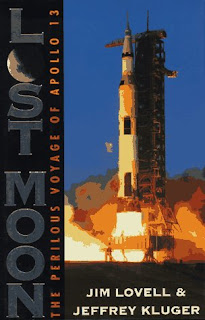Perfume: The Story of Murder by Patrick Suskind
Summary:
Patrick Suskind’s classic novel is a
terrifying examination of what happens when one man’s smell becomes a passion
so intense it leads him to murder.
In the slums of eighteenth-century
France, the infant Jean-Baptiste Grenouille is born with a gift, an unusual keen
sense of smell. As a boy, he lives to unravel the odors of Paris giving them a
source. He later apprentices himself to a prominent perfumer who teaches him
the ancient art of mixing precious oils and herbs. But Grenouille’s is not
satisfied to stop there, and he becomes obsessed with capturing the smells of
objects such as brass doorknobs and fresh-cut wood. Then one day he catches a
hint of a scent that will drive him to create the “ultimate perfume” It is the
scent of a beautiful young virgin. In this obsession, Grenouille becomes a serial
killer leading to the one girl who possesses the scent he wants to bottle. Perfume is
a passionate, powerful tale of murder.
Review:
In Perfume, Patrick
Suskind creates an original, unforgettable story about murder placing the
reader in the precarious position of sympathizing with the killer,
Jean-Baptiste Grenouille. It is the same sympathy Vladimir Nabokov seems to want
the reader to feel in his story, Lolita.
A story about Humbert, a man who obsesses over a girl much too young for him. For
myself, sympathy is a feeling of pity for another human being, with sympathy
being measured on a scale of 1-10, ten being the highest level of sympathy.
Grenouille and Humbert get about a three from me, but
it is enough to make me read their stories, and root for an outcome of ethical
resolution. Humbert is not allowed to possess young Lolita, and Grenouille is
not allowed to kill another human being specifically young virgins.
Grenouille is a fascinating character one could easily
describe as moldy cheese delightful with green fuzz cut off his edges. With
Grenouille, his specific genius and planning to create specific scents took on
a magical quality that often changed the ugly person he felt he was born into;
the moldy cheese. He could wear a scent that made him invisible, or loved. The
intrigue of this kept the reader on the edge of each of his break throughs understanding
and sympathizing with him at each turn he took, hoping for a compromising
resolution.
The plot twist leading to the climatic ending kept me
guessing and hoping for Grenouille, and yet rooting against his deepest desire.
Everything leading to this point in the book, the climax – worked; however, the
ending strayed away from the believability set up in the initial exposition of
the story. The ending is like the wind, who woos. It is inconstant personifying
that which the reader has barely come to accept like how Grenouille can create his
own scent.
The ending is a bit like a party after a self-discovery
journey that should have led to the quiet tranquility of the outdoors. It simply
did not work for me. But even though the ending did not work for me, the rest
of the book did. It is a terrific twist on a murder which utilizes scent. The descriptive,
setting, and characterization flavored this original tale placing the reader in
each vivid scene. A must read, but be forewarned, it is not for the light of
heart, but it is also not horribly creepy. It should be noted, I’ve never finished
Lolita, too ethical, too sympathetic, too easily creeped out.








